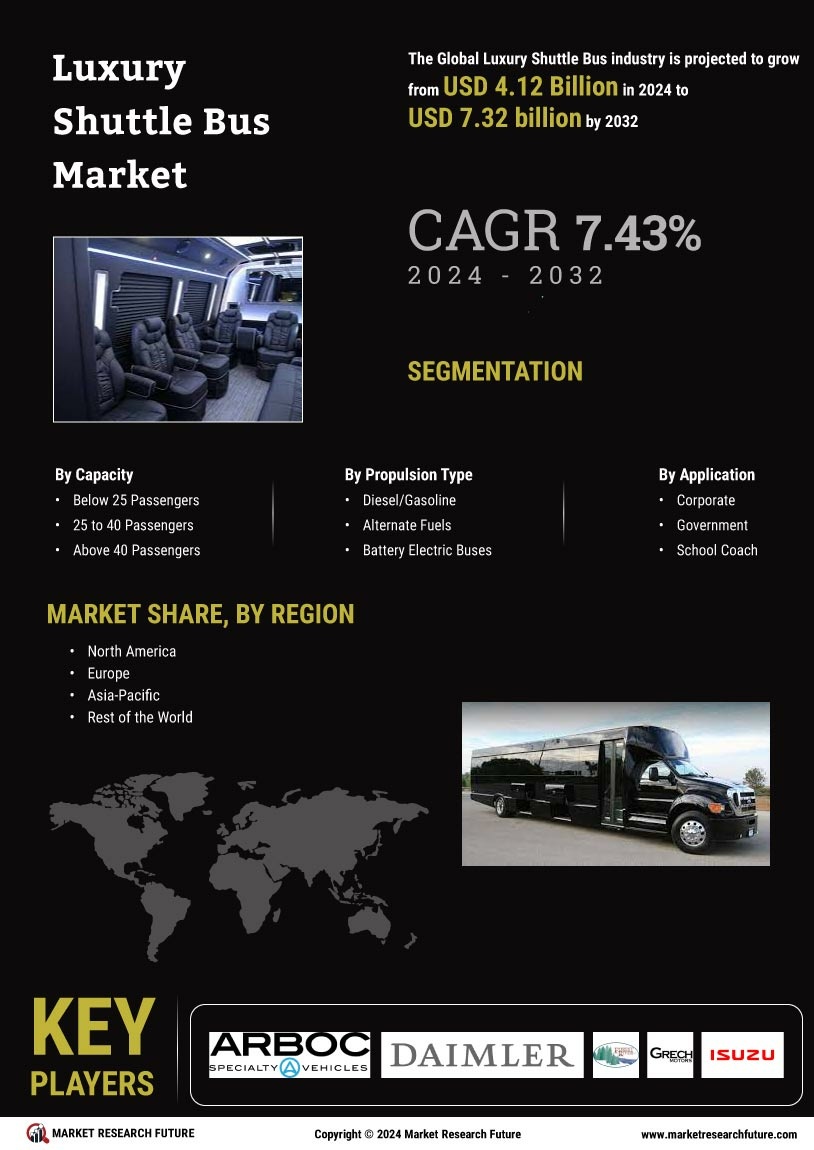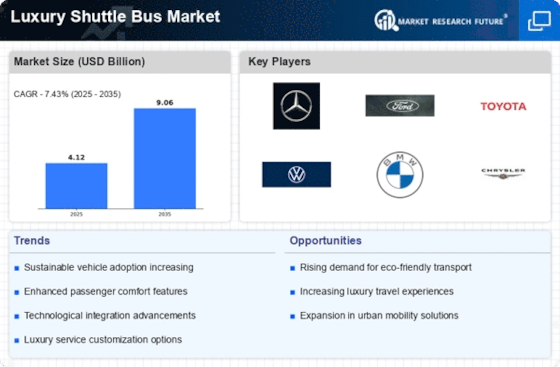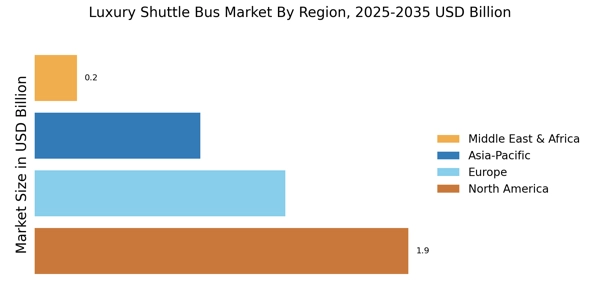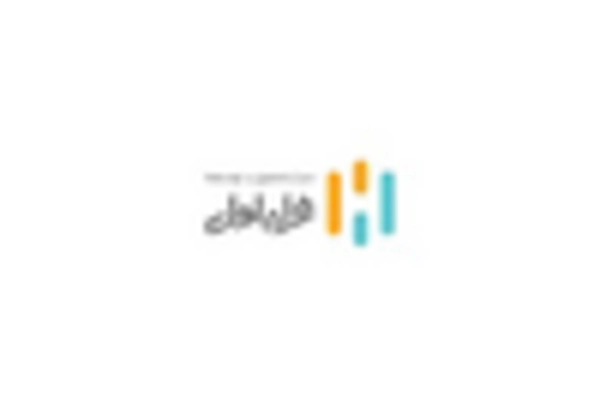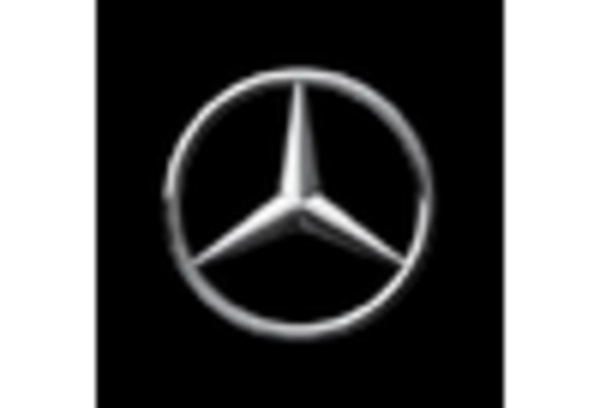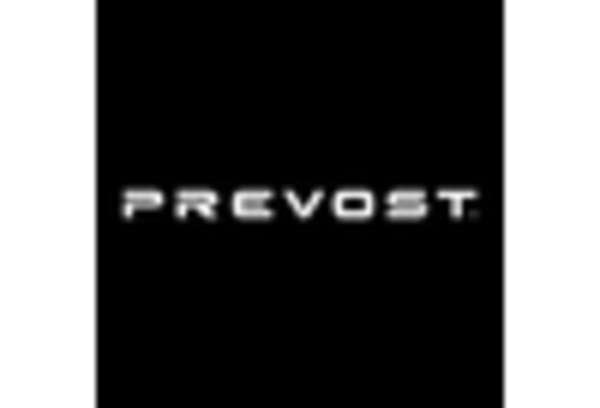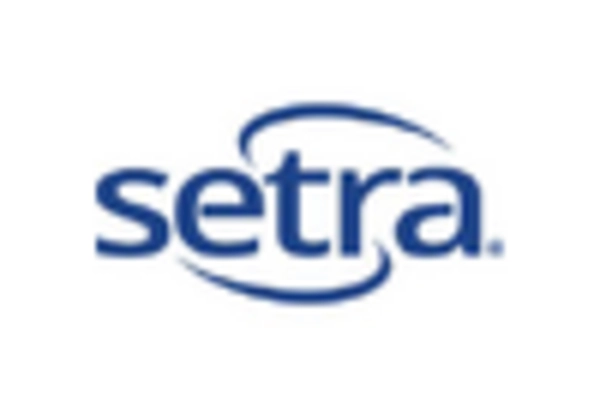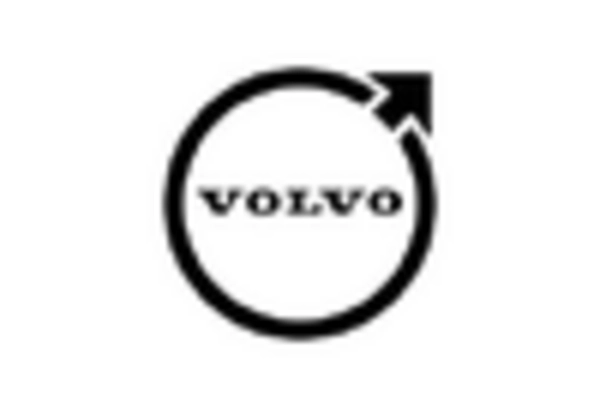Corporate Travel Trends
The Luxury Shuttle Bus Market is positively impacted by the evolving trends in corporate travel. Businesses are increasingly investing in premium transportation solutions for their employees and clients, recognizing the importance of comfort and efficiency in travel. Recent surveys reveal that over 60% of companies are willing to allocate a larger budget for luxury transportation services, reflecting a shift in corporate travel policies. This trend not only enhances employee satisfaction but also improves overall productivity. As corporate travel continues to expand, the Luxury Shuttle Bus Market stands to benefit from increased demand for tailored shuttle services that cater to the needs of business professionals.
Expansion of Urban Mobility Solutions
The Luxury Shuttle Bus Market is significantly influenced by the expansion of urban mobility solutions. As cities grow and evolve, there is a pressing need for efficient and luxurious transportation options that cater to urban dwellers and visitors alike. The integration of luxury shuttle buses into public transport systems is becoming more prevalent, providing a seamless travel experience. Recent statistics indicate that urban mobility initiatives are projected to increase the demand for luxury shuttle services by 15% over the next five years. This trend highlights the potential for growth within the Luxury Shuttle Bus Market, as urban planners and transportation authorities recognize the value of incorporating high-end shuttle services into their infrastructure.
Rising Demand for Premium Transportation
The Luxury Shuttle Bus Market experiences a notable increase in demand for premium transportation services. This trend is driven by affluent consumers seeking comfortable and stylish travel options for both business and leisure purposes. According to recent data, the luxury transportation segment has seen a growth rate of approximately 8% annually, indicating a robust market potential. As more individuals prioritize convenience and luxury, shuttle bus services that offer high-end amenities are becoming increasingly popular. This shift in consumer preferences suggests that companies operating within the Luxury Shuttle Bus Market must adapt their offerings to meet the expectations of discerning clients, thereby enhancing their competitive edge.
Technological Advancements in Fleet Management
The Luxury Shuttle Bus Market is experiencing a transformation due to technological advancements in fleet management. Innovations such as GPS tracking, real-time data analytics, and automated scheduling systems are enhancing operational efficiency and customer satisfaction. These technologies enable luxury shuttle service providers to optimize routes, reduce wait times, and improve overall service quality. Recent data suggests that companies adopting advanced fleet management solutions can increase their operational efficiency by up to 20%. This technological integration not only streamlines operations but also positions the Luxury Shuttle Bus Market as a forward-thinking sector, appealing to tech-savvy consumers who value modern conveniences.
Focus on Sustainability and Eco-Friendly Practices
The Luxury Shuttle Bus Market is increasingly aligning with sustainability and eco-friendly practices. As environmental concerns gain prominence, consumers are gravitating towards transportation options that minimize their carbon footprint. Luxury shuttle services that utilize electric or hybrid vehicles are becoming more attractive to eco-conscious travelers. Recent studies indicate that nearly 70% of consumers are willing to pay a premium for sustainable transportation options. This growing emphasis on sustainability presents a unique opportunity for the Luxury Shuttle Bus Market to innovate and differentiate itself by adopting greener practices, thereby appealing to a broader audience and enhancing brand loyalty.
